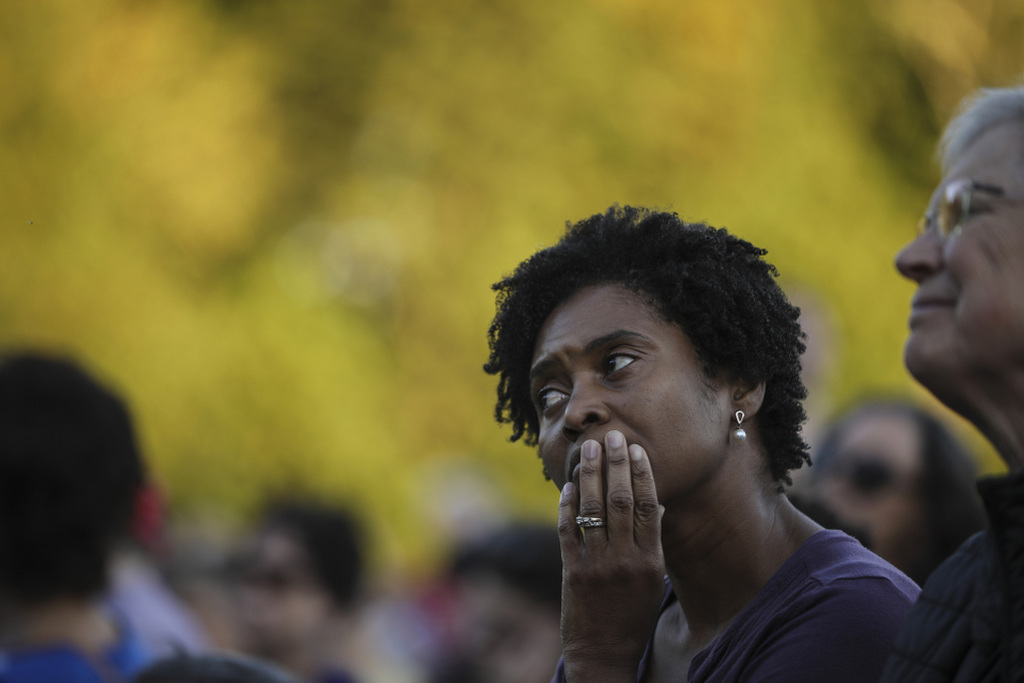[ad_1]
By WILL WEISSERT and ERRIN HAINES Associated Press
WASHINGTON (AP) — Joe Biden’s path to the Democratic presidential nomination centers on South Carolina, where he’s counting on support from Black voters who are critical to victory. But Elizabeth Warren is working to prove that she can also be a force there — potentially disrupting the former vice president’s strategy.
After concentrating on Iowa and New Hampshire, Warren is increasingly focused on South Carolina, home to the nation’s first southern primary. She’ll be in the heavily military community of Rock Hill on Saturday for a town hall, and will return next month to attend a criminal justice forum in Columbia, the state capital. That follows increased travel to the state in recent weeks, including town halls on the campuses of historically Black universities and visits to African American churches.

Warren still lags some of her rivals in endorsements from prominent state lawmakers or pastors.
But her South Carolina moves will test whether the strength she demonstrated this summer in predominantly White Iowa and New Hampshire can carry over to states with more diverse electorates. That’s a key hurdle for any Democratic nominee to clear if they hope to recreate the multicultural coalition that helped Barack Obama win the White House twice.
While many Black voters are loyal to Biden, who served as Obama’s No. 2, there are signs some are open to other candidates.
“Black voters aren’t all that committed to Biden,” said Black Voters Matter co-founder Cliff Albright. “His Black support boils down to two things: His affiliation with Barack Obama and his electability.”
Rather than trying to “out Obama” Biden, Albright said Warren should make her own case for electability.
With her plans to tax the wealthy to pay for programs benefiting the middle class, Warren is emerging as a chief rival to Biden, especially among progressive voters. Recent polls in Iowa and New Hampshire found her in a close race for first with the former vice president. And at least one poll published this week by Quinnipiac University suggested that trend could be playing out nationally.
But Biden’s support among Black voters still far outpaces that of Warren. The Quinnipiac poll showed that even as Warren’s support among Black voters has grown nationally, Biden still comes out well ahead. Her biggest gains were among college-educated Whites.
Kennedie Fee represents the challenges that remain for Warren. The 18-year-old African American student at Clemson University is precisely the type of voter Warren would like to attract. But she said she plans to cast her first presidential primary vote for Biden, praising “his past, the points he’s making, being vice president for Obama” and desire to curb institutional racism in the criminal justice system.
“He’s kind of reaching out to all people,” Fee said.
Activist and educator Brittany Packnett said Warren has many women of color on her campaign but might benefit from putting them in more public roles.
“There are people on her team who have been working in our communities for a long time,” said Packnett, who hasn’t endorsed any 2020 candidate. “That’s one of her biggest advantages.”
Other 2020 candidates are also prioritizing South Carolina. Kamala Harris, one of two Black candidates in the race, sees the state as a must-win, but has shifted much of her attention lately to Iowa. Bernie Sanders, meanwhile, is trying to learn from his resounding 2016 defeat in South Carolina, which blunted his momentum after a strong showing in Iowa and a decisive win in New Hampshire.
Warren wants to avoid becoming the Sanders of the 2020 race — the progressive who does well in the first contests in overwhelmingly White states only to crash in South Carolina. Her campaign has prioritized outreach to minority communities. Supporters suggest that as she gains strength in other early voting states, she could improve her standing in South Carolina, where voters ultimately want to side with someone who can win the nomination and take on President Donald Trump.
South Carolina voters were similarly skeptical of Obama until he won the 2008 Iowa caucuses. After prevailing in Iowa and New Hampshire in 2004, John Kerry finished a strong second in South Carolina, falling to Sen. John Edwards of neighboring North Carolina, but beating a Black candidate, Rev. Al Sharpton.
BlackPAC Executive Director Adrianne Shropshire said Warren could find similar success.
“When Black voters are paying close attention, support for Warren goes up,” Shropshire said.
__
Haines reported from Philadelphia. Associated Press Writers Meg Kinnard in Columbia, S.C. and Michelle Price in Las Vegas contributed to this report.
[ad_2]
Source link

